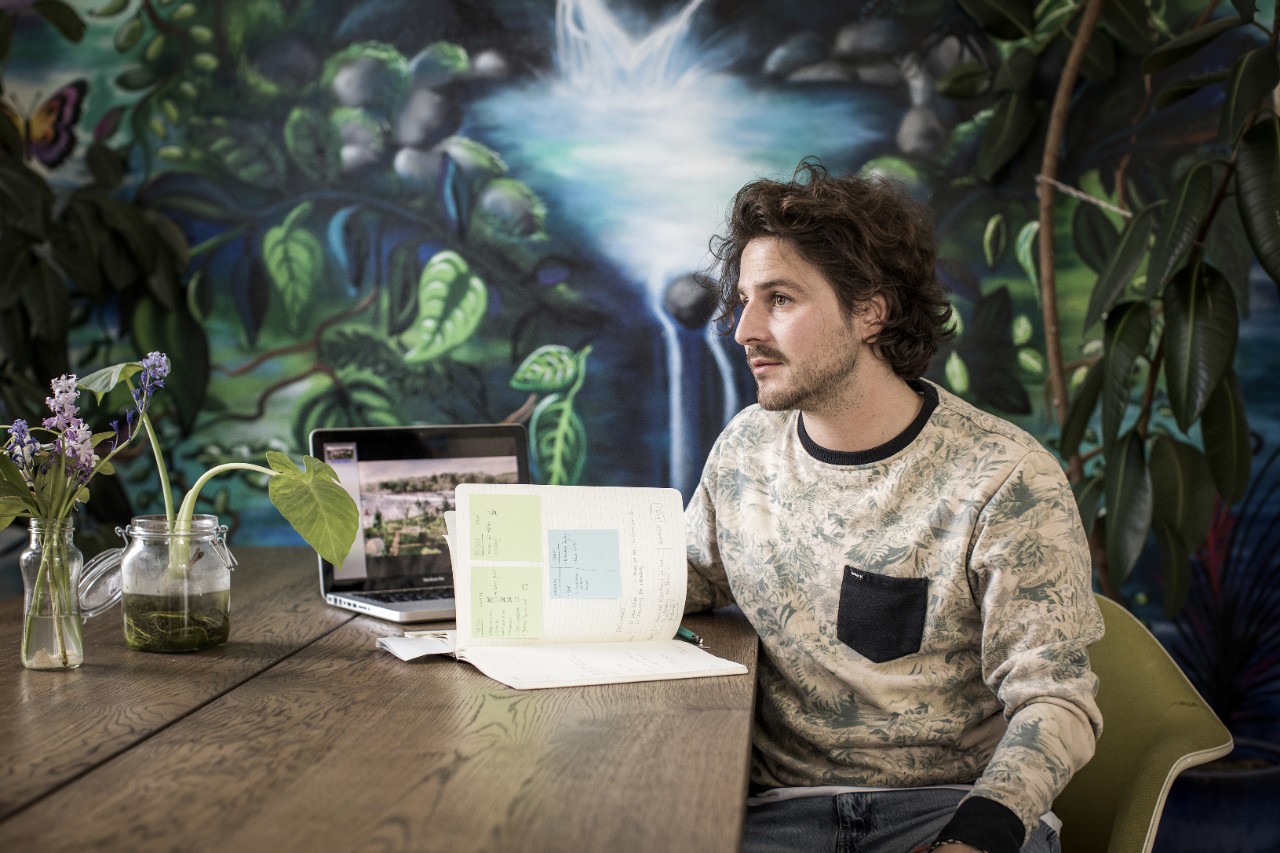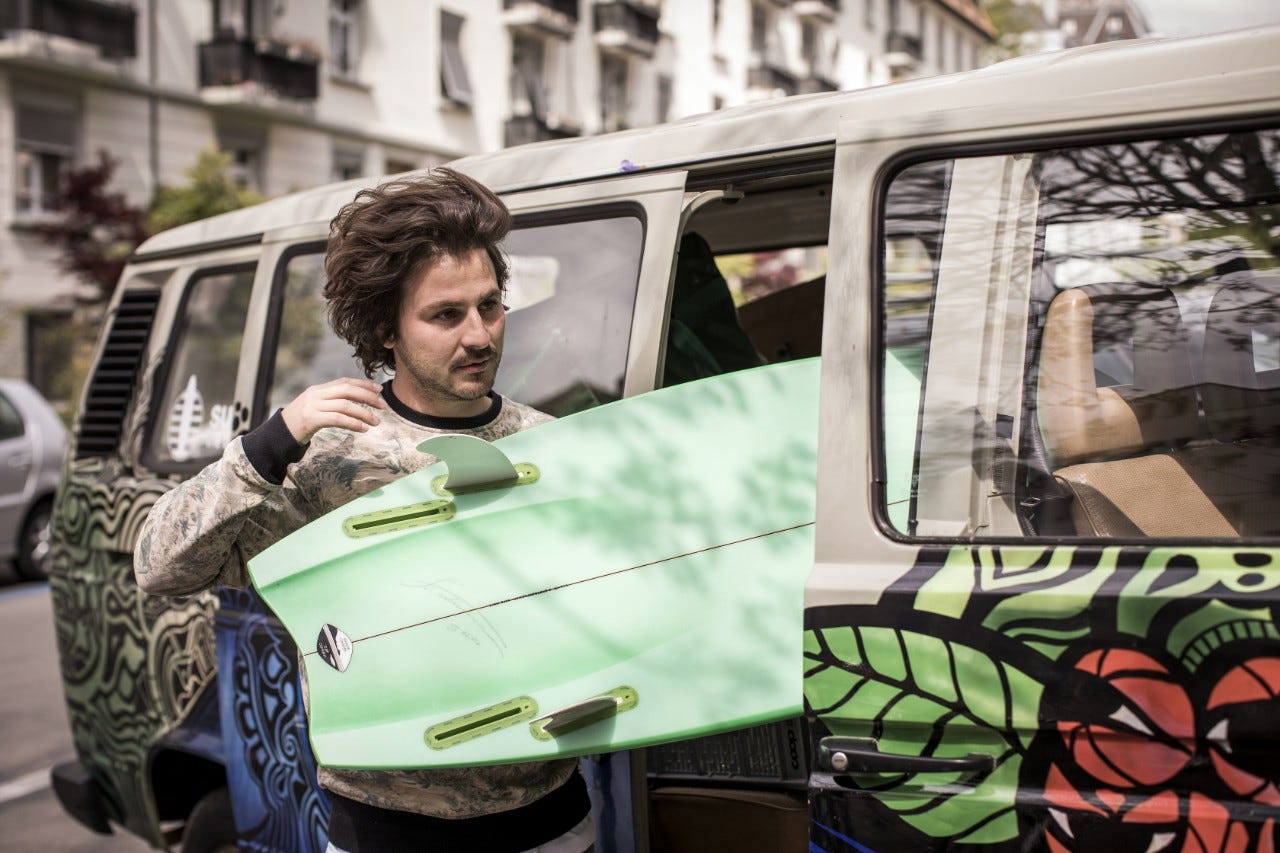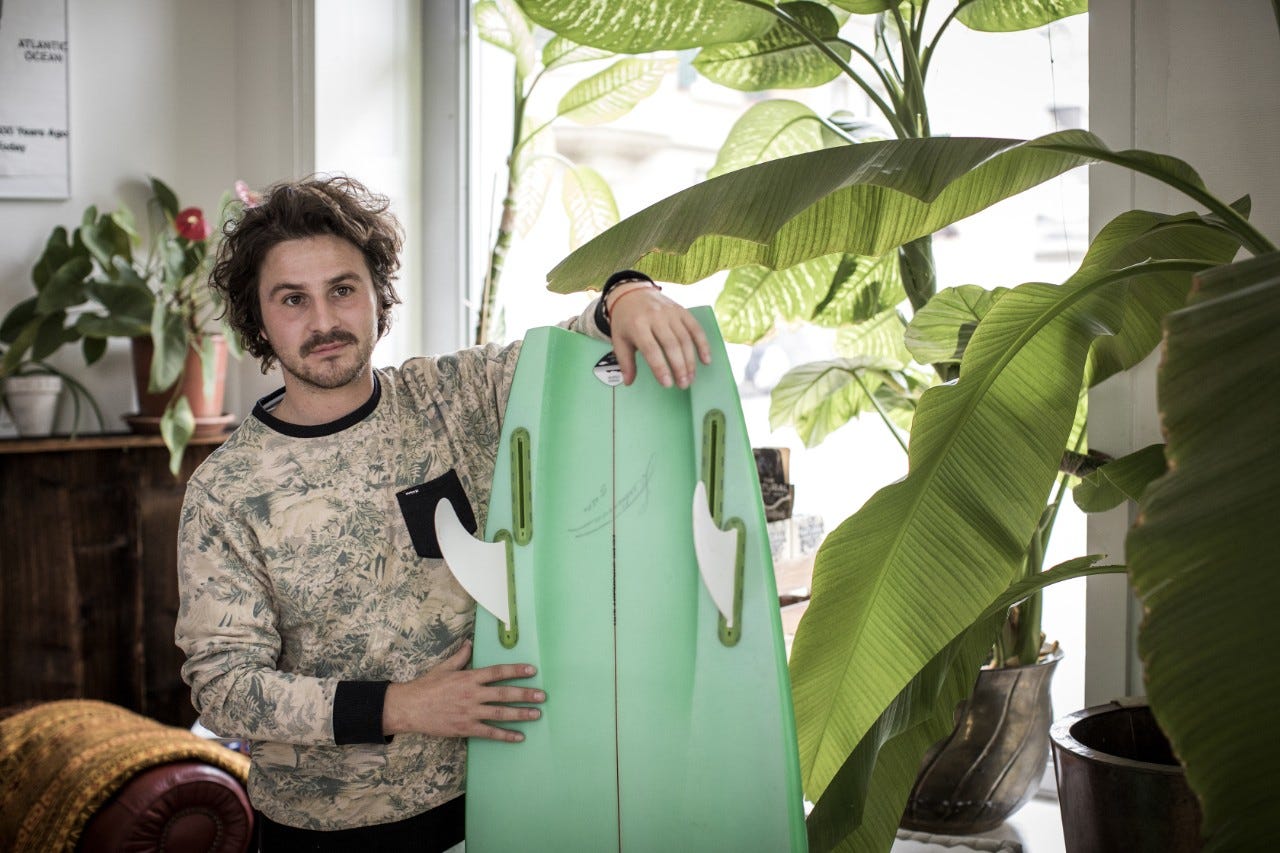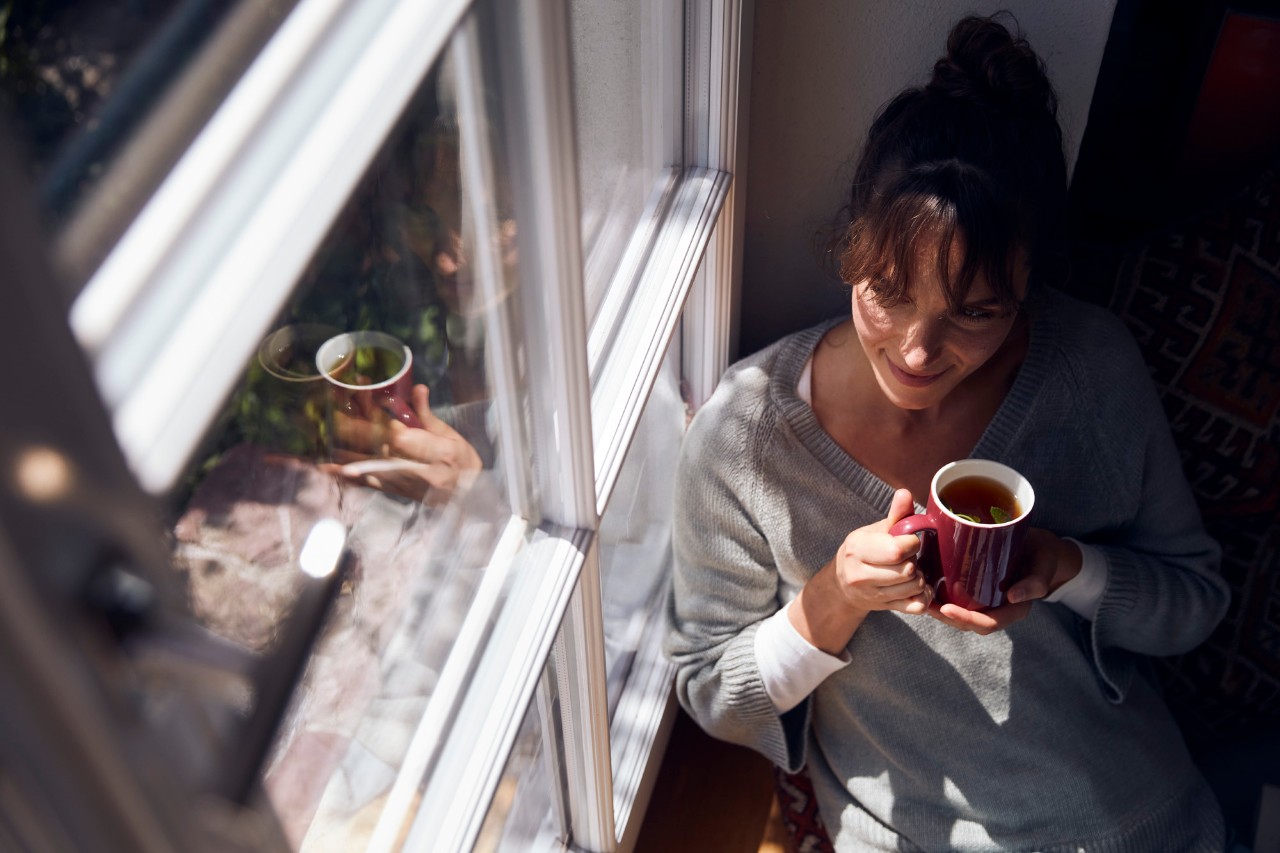Burnout: “The first step was to create boundaries”
Pascal Brotzer was just 29 when he had a burnout. As he underwent therapy, he knew he must never allow it to happen again.

“TIght chest, dizziness, a feeling like lovesickness – just 1,000 times worse. I knew something was wrong that morning. I burst into tears on the street for no reason. I was scared and didn’t understand what was wrong so I drove to my parents’ house. My mum wanted me to stay until Sunday. When I realised that I now had three days off, I broke down: I couldn’t speak or walk and passed out. Burnout – at 29.
“Sometimes I’d forget to eat for two days.”
Looking at my blood counts, the doctor said I’d either just run a marathon or had been pushing myself to the limit for too long. He asked whether I slept at all. At this point I’d been working solidly for two years, with no holidays, not even a weekend off. Alongside my full-time job, I’d got a surf magazine off the ground and developed and driven forward the idea for waveup – my “baby”. Sometimes I’d forget to eat for two days.
I’d always thought that stress was “part of the game”. If my 30 million heart project is to be realized, then that is simply part of it. The problem: my brain was constantly rattling. The ever increasing pressure got too much for me. And I was the only one to blame.
The hardest thing for me was keeping all the voluntary and new partners on board and up to speed. I was totally drained after meetings. I put the symptoms of stress – dizziness, shaking, problems with my vision – down to low blood sugar.
After my breakdown last year, I knew that I never wanted to experience something like that again. I admitted myself to a psychiatric clinic for 12 weeks.
“When there’s no more space in my diary, my day is full.”
I was by far the youngest at the clinic. When you’re there it’s like you’re in a bubble, a dream world. You recover quickly in the clinic and you soon have the feeling you’re back on track. But all patients are scared of being discharged – because the real world awaits outside. Then you hear: Great that you’re better, let’s go! That’s why many of my fellow patients weren’t able to change their habits, and had been in the clinic several times already.
I realised that I can’t change my job, but I can change how I work. The first step was to create boundaries. I moved from Zurich to St. Gallen and I now leave my work behind in Zurich at the end of the day. I meet up with old friends again and make time for my girlfriend. Once a day I do mindfulness exercises to relax. And there’s one more simple change: I keep a normal, old-fashioned paper diary. When there’s no more space in my diary, my day is full.”




